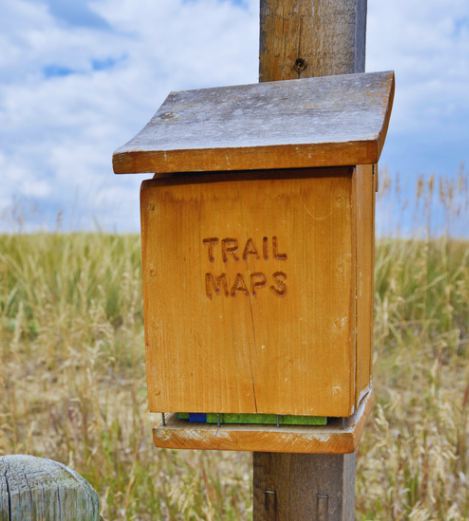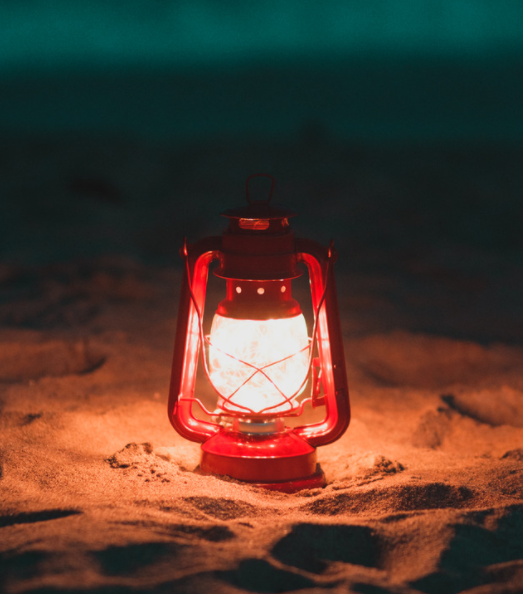In podcasting, losing the forest for the trees is a daily struggle. At any given moment, you’re juggling deadlines, guests, content ideas, and a whole slate of other duties. How is this segment supposed to be structured? Does this piece of music play before or after the sponsor break? Is my show on track with its original intent?
If only there were a reference manual for your podcast. Something to help you conserve brain power, communicate your show’s identity, and refine its style over time.
Enter the podcast show bible.

What’s a Show Bible?
A podcast show bible is your guiding force — a blueprint of your show. When stuck or straying from the show’s original intent, the show bible is where you go to refamiliarize yourself with themes, structure, and why the show exists in the first place. It’s also a big help if you ever want to hand over the reins of editing, writing, or other production duties to someone else in the future.

Historically, a show bible has been used in film and television to pitch for series funding, as well as act as a reference document throughout production. Major and independent podcasts are discovering the value of creating their own show bible to structure (and later, analyze) their shows.
A podcast show bible is where you go to refamiliarize yourself with themes, structure, and why the show exists in the first place.
How much time it will take to make one of these show bibles? It’s going to take a little while, especially if you’re still working out your show’s kinks and discovering its essence. Don’t get discouraged! Time invested now will pay major dividends in the future.
If it sounds a bit daunting, fear not. We’ll walk through the five steps of the process and provide all the details you need to build your podcast show bible today.
To get started, open a word processing doc or spreadsheet, preferably one that’s cloud-based. (Google Docs and Google Sheets are both free and work like a charm.) Working via the cloud ensures you (and your team, if you have one) can access the most recent version of your show bible from any device.

Part 1: What’s Your Show Like?
There’s an old adage in entertainment that’s also relevant to podcasting: Give me the same thing, but different. Comparing your show to popular shows (accurately, of course) is a great way to place its style and genre in the market. Try this: Smash 2-3 popular shows together to define your concept. This can read simply: [Your podcast’s title] is [podcast X] meets [podcast Y].
Example: Let’s say you’re starting a podcast called Worst Morning Ever. The goal is to help listeners reframe the difficulties of their day by offering sometimes deadly (and always hilarious) stories of people whose mornings were much worse. What’s that show like? Here’s an example: Worst Morning Ever is My Favorite Murder meets Radiolab.
It needn’t be any more complicated than that.

Part 2: Develop Your Logline
A logline is a brief summary of your show with a sharp hook. This is an even tighter, more concise form of your 15- to 30-second elevator pitch. For Worst Morning Ever, the logline could be: “Start your day with a bang — or a stab, slip, crash, fall — with five-minute stories of people whose hilariously deadly mornings will make yours feel easy breezy.”

Some examples from popular podcasts:
Twenty Thousand Hertz: Go behind the stories of the world’s most recognizable and interesting sounds.
My Favorite Murder: Lifelong fans of true crime stories tell each other their favorite tales of murder and hear hometown crime stories from friends and fans.
The Dollop: Comedians Dave Anthony and Gareth Reynolds pick a subject from history and examine it.
One trick to finding a logline is to just start writing. Don’t try to condense anything yet — let the paragraphs flow until you’ve expressed every element of your podcast. Now, look over what you’ve written. Which keywords or phrases stick out as being true to the heart of the series? How can you iterate on those to create a logline that’s unforgettably intriguing?
Don’t try to condense anything yet — let the paragraphs flow until you’ve expressed every element of your podcast.
Continue with trial and error, chopping out every unnecessary word and molding the leftovers into a logline you’re proud to share with strangers when they ask, “What’s your podcast about?”

Part 3: One-Sheet Essentials
This one-page document is a view of your show from 30,000 feet. This will present just the essentials. Focus on providing key information rather than showing off your creative flair. What to include in your one-sheet:
- Title, show mash-up, and logline: You’ve already knocked these out, great work!
- Episode length: How long do you estimate your episodes will be?
- Episode cadence: How often will you be releasing episodes?
- Show synopsis: As the name implies, this segment shouldn’t be longer than one page.
- Format: Do you have recurring segments? Is your intro scripted? You’ll answer these questions and more with brief, to-the-point answers.
When you’re finished, it might look something like this:


Part 4: Into the Depths

This is where you take the condensed ideas from your one-sheet and unload all the details. Do you play intro music for seven seconds before your voice comes in? What do you hope your audience will take away from your show? No detail is too small — don’t leave anything behind.
Episode maps serve as a way to find commonalities, places to improve, and elements that you’ve done well.
- Show structure: What are the pieces that make up an episode of your podcast? Do they vary episode by episode? Do you start the show with an opening sequence (i.e., show title, host intros, music)? Or a cold open (e.g., an intriguing sound bite from the show, then jumping into the narrative)?
If you’ve already produced episodes, map out a handful of them in this section. This will help you get to know your content better and serve as a way to find commonalities, places to improve, and elements that you’ve done well.
- Recurring segments: What are they and what do they bring to the show?
- Themes: Does your show have an ongoing theme (or themes) you need to tie into each episode? If so, how do you tie it in? Give examples of what you’ve done before and ideas you’ve yet to use.
- Show goals: What do you hope to achieve with your show for yourself and for your audience? Set up three-month, six-month, and one-year plans, then schedule times to revisit them.
If your show is narrative-based, you’ll want to add another section specifically for character backgrounds, personality profiles, and story arcs.

Part 5: Odds and Ends
This final section is home to any additional resources, such as:
- Royalty-free sound effects (Soundsnap is a great one) and music (Artlist is my go-to)
- Show inspiration (podcasts that get you excited about working on your show, YouTube links, etc.)
- Potential partnerships (distributors you think would be interested in your show, advertising partners, etc.)
- Rituals: Is there a particular tongue-twister you do before recording to warm up? Do you want to remember to smile while you talk to give a warmer feeling to your voice? Park all notes to your future self here.

Parting Thoughts

Your podcast show bible is never finished. It’s an adaptable, living thing. Revisit your show bible every quarter to put it to the test and make necessary adjustments. Some questions to ask during each visit:
- Is the structure of the show working well? If not, how can it be improved?
- What’s one thing you wish you could change about the show? Would that change be welcomed by listeners and (potential) advertisers? If yes, then make a plan to implement the change. (Be sure to update your show bible accordingly.)
- What did you hope to explore for your own enjoyment? What do you hope to explore for the enjoyment of the audience? Where do your answers overlap?
Revisit your show bible every quarter to put it to the test and make necessary adjustments.
Building out a podcast show bible is a wise move that translates beyond podcasting. Remember its original use in TV and film? If you’re ever in a position to pitch to a network or a competitive sponsor, most of your prep work will already be finished.
From thinking to writing to finding references, all of the time you spend writing your show bible will benefit you in the long run. A deeper understanding of your podcast is the best gift you can give yourself and your listeners.




Join the Movement